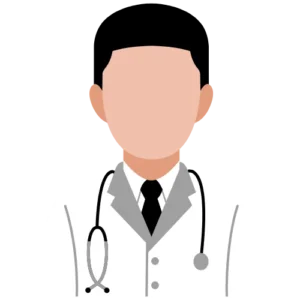Orthopedic Center
Trupti Jadhav
Overview
An orthopedic center, also known as an orthopedic clinic or orthopedic hospital, is a specialized healthcare facility dedicated to the diagnosis, treatment, and rehabilitation of musculoskeletal conditions and injuries. Orthopedic centers typically have a multidisciplinary team of healthcare professionals, including orthopedic surgeons, physiotherapists, occupational therapists, nurses, and other specialists, all working together to provide comprehensive care to patients.
Orthopaedic disorders are conditions that affect the musculoskeletal system, including bones, joints, muscles, tendons, ligaments, and nerves. Treatment options for orthopaedic disorders can vary depending on the specific condition, severity, and patient’s individual factors.
Overall, orthopedic centers play a crucial role in helping patients of all ages maintain musculoskeletal health, recover from injuries, and improve their quality of life through comprehensive and specialized care.
Here are some common categories of treatment options for orthopaedic disorders:
Non-surgical/Conservative Treatment
Medications: Pain medications, anti-inflammatory drugs, muscle relaxants, and other medications may be prescribed to manage pain and inflammation associated with orthopedic conditions


Physical Therapy
Exercises, stretching, and other physical therapy modalities may be recommended to improve strength, flexibility, and mobility, and to facilitate recovery.
Bracing, Splinting, and Casting
These may be used to support and immobilize injured or unstable joints or bones.
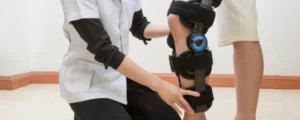
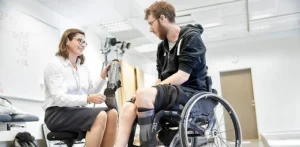
Assistive Devices
Orthopedic devices such as crutches, canes, walkers, and orthotics may be used to support mobility and alleviate pain.
Neuromuscular Disorders
Lorem ipsum dolor sit amet, consectetur adipiscing elit. Ut elit tellus, luctus nec ullamcorper mattis, pulvinar dapibus leo.
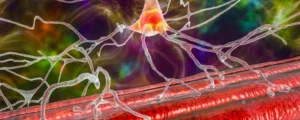

Lifestyle Modifications
Lifestyle changes such as weight management, activity modification, and ergonomic adjustments may be recommended to reduce stress on joints and prevent further damage.
Injection Therapy
Corticosteroid injections, hyaluronic acid injections, and other types of injections may be used to reduce pain and inflammation in joints. Rehabilitation: Comprehensive rehabilitation programs may be designed to help patients recover from orthopedic injuries or surgeries, and to optimize functional outcomes

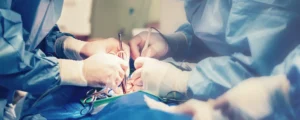
Minimally Invasive Procedures
Arthroscopy: This is a minimally invasive surgical procedure that uses a small camera and specialized instruments to diagnose and treat conditions in joints, such as repairing torn ligaments or removing damaged cartilage. Minimally Invasive Fracture Fixation: Techniques such as closed reduction, percutaneous pinning, and minimally invasive plating may be used to treat fractures with smaller incisions and less disruption of surrounding tissues.
Surgical Procedures
Joint Replacement Surgery: Total joint replacement surgeries, such as hip replacement, knee replacement, and shoulder replacement, may be performed to replace damaged or diseased joints with artificial implants.
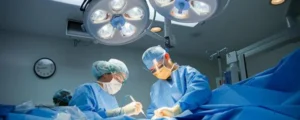
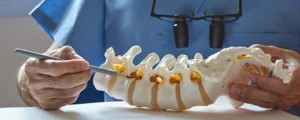
Spine Surgery
Various spine surgeries, such as laminectomy, discectomy, spinal fusion, and spinal decompression, may be performed to treat conditions such as herniated discs, spinal stenosis, and degenerative disc disease. Fracture Fixation: Open reduction and internal fixation (ORIF) surgeries may be performed to realign and stabilize fractured bones using metal screws, plates, or rods.
Soft Tissue Repair
Surgeries to repair torn ligaments, tendons, and muscles, such as ACL reconstruction, rotator cuff repair, and Achilles tendon repair, may be performed to restore function and stability.
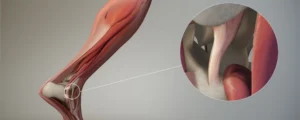
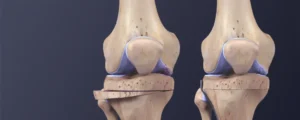
Bone Grafting
Bone grafts may be used to promote bone healing in cases of non-union or delayed union of fractures, or to supplement bone loss due to various orthopedic conditions.
Tumor Excision
Surgical removal of bone tumors or soft tissue tumors in the musculoskeletal system may be performed to treat benign or malignant tumors. Debridement: Removal of infected or damaged tissue from bones or joints to prevent further damage or infection.
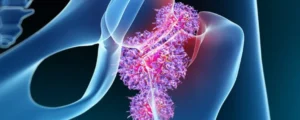
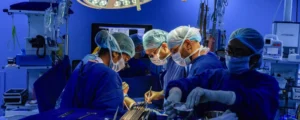
Revision Surgeries
Repeat surgeries may be performed to correct complications or failures from previous orthopedic surgeries. It’s important to note that the specific treatment options for orthopedic disorders may vary depending on the nature and severity of the condition, as well as the patient’s overall health and individual needs. A thorough evaluation and consultation with a qualified orthopedic specialist are available at SOLARIS Hospital to determine the most appropriate treatment approach for each individual case.

